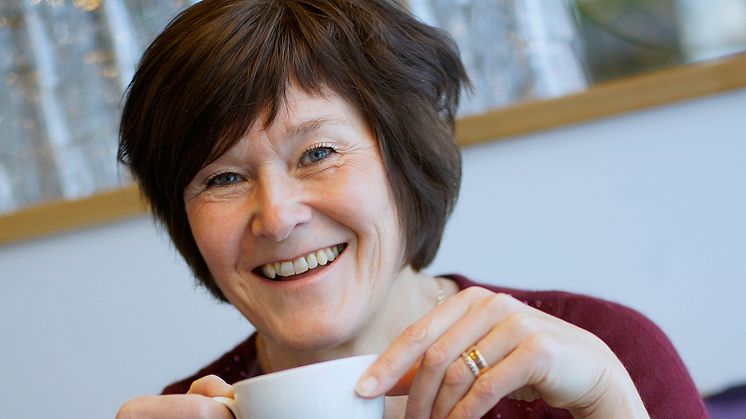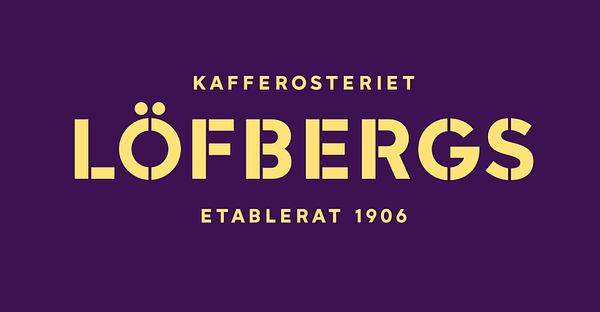
Press release -
Löfbergs reduced its climate impact
Even though Löfbergs increased its production, the company's climate impact decreased. This is partly due to continuous energy efficiencies and more renewable energy. At the same time, the company sold a record amount of coffee from certified farms. This is shown in the coffee group's sustainability report for 2013/2014.
- We are well on our way to reach our goal of reducing our climate impact with 40 percent. Our vision is to be Europe's most sustainable coffee group, says Eva Eriksson, sustainability manager at Löfbergs.
Greatest climate impact in the farming stage
Löfbergs produces a sustainability report for the fourth consecutive year. In this report, the company publishes goals, measures, results and challenges within the sustainability area. The work involves the entire value chain, from bean to cup.
- The coffee growing stage is responsible for more than 80 percent of the climate impact of coffee, so this is where our investments are doing most good. Increasing the supply and demand for coffee from certified farms is an important measure, says Eva Eriksson.
Löfbergs purchases all coffee directly from the producing countries and is today one of the world's largest importers of organic and Fairtrade labelled coffee. Last year, the company purchased 9,200 metric tons of coffee from certified farms. The share of certified products under the brand Löfbergs increased from 21 to 34 percent.
- We work with organic certifications, Fairtrade and Rainforest Alliance. They have slightly different focus, but they all do good for people as well as the environment, says Eva Eriksson.
Our own development projects
To improve the conditions and opportunities for small-scale coffee farmers, Löfbergs also has its own development projects. The work is carried out within the scope of International Coffee Partners, where Löfbergs operates together with six other family-owned coffee companies.
- More than 30.000 coffee farmers have participated in our projects so far. The projects improve the farmers' ability to compete and their living conditions, says Eva Eriksson.
Aim at 100 percent renewable
Since the base year of 2005, the company has reduced its climate impact with 31 percent from 0.149 to 0.103 metric tons of carbon dioxide equivalents per produced metric ton of coffee. Löfbergs also has a goal to use 100 percent renewable energy by 2020. Today, that number is 37 percent.
- 100 percent renewable energy is one of our greatest challenges. We are already using green electricity from wind turbines as well as district and geothermal heating in Karlstad, and we are actively searching for solutions to be able to roast with biofuel, says Eva Eriksson.
Natural gas was replaced with biogas this year at the roasting house in Viborg, Denmark, which is now using 100 percent renewable energy. At the roasting house in Riga, Latvia, extensive insulation was made, which will lead to energy savings corresponding to 78.6 metric tons carbon dioxide per year.
Löfbergs was founded in 1906 and is one of the largest family-owned coffee roasters in the Nordic countries. The company operates on about ten core markets in Northern Europe with its own companies in Norway, Denmark, Latvia and the UK.
Löfbergs's sustainability report is available for everyone and can be downloaded here: Sustainability Report 2013/2014.
For more information:
Eva Eriksson, Sustainability Manager, Löfbergs, +46 (0) 54-14 01 23, eva.eriksson@lofbergs.se
***
Some facts from Löfbergs's sustainability report 2013/2014
- Climate impact of coffee (%)
Coffee growing 82
Transports 3
Processing: 3
Delivery: 3
Consumption: 9
(Source: SIK 2013)
- Löfbergs purchased 9,200 metric tons of coffee from certified farms this year.
- 34.2 percent of all coffee sold under the Löfbergs brand was certified. Of this, 42 percent was both organic and Fairtrade labelled.
- Löfbergs's climate impact has decreased with 31 percent since 2005.
- 37 percent of the energy that Löfbergs used was renewable.
- 99 percent of Löfbergs's waste was recycled.
- The attendance rates at Löfbergs was 99 percent.
Related links
Topics
Categories
Löfbergs is one of the largest family-owned coffee roasters in the Nordic countries. The company has 300 employees and a turnover of SEK 1.5 billion. The head office is situated in Karlstad, Sweden and the company has its own roasting-houses in Sweden, Norway, Denmark and Latvia. The company was founded in 1906 and is today one of the world's largest importers of ecological and Fairtrade labelled coffee. Löfbergs also owns the tea brand Kobbs.

